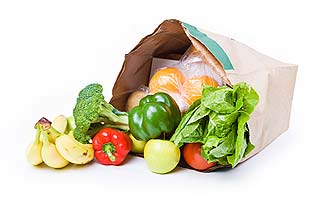Starting a Vegetable Garden
There are a number of great reasons for growing your own vegetables. First and foremost is the taste. Home
grown vegetables have a much nicer taste than supermarket vegetables and last considerably longer, as some
store veggies deteriorate within days of purchase. Secondly, growing your own vegetables is cheaper, and you
don't have to be wary of genetically modified food, as you know exactly what has gone onto and into yours.
So how do you establish a vegetable garden? The most important factor in creating a successful vegetable
garden is a location with lots of sunlight. Pick the sunniest spot in the garden you can find. If the only
sunny area outside is concreted or a balcony, then plant the vegetables in pots. There are a number of types of
veggies which are developed specifically to be grown in containers, and the process is easier than ever before.
The soil used for a vegetable garden needs to be nice and crumbly and well-draining, to allow easy access
to nutrients, water and air. This will ensure rapid root growth and fast developing vegetables. Compost and
animal manure also assist in growth by creating ideal conditions for the vegetables.
Knowing what to plant is the most important factor of a vegetable garden. There is no point planting a vegetable
that no-one in your household will eat. Cater to your market, and continually sow seeds so that you have a
constant supply of fresh vegetables. Some of the easiest to grow and most rewarding are beans, peas, tomatoes,
lettuce, carrots, broccoli zucchini and capsicums.

